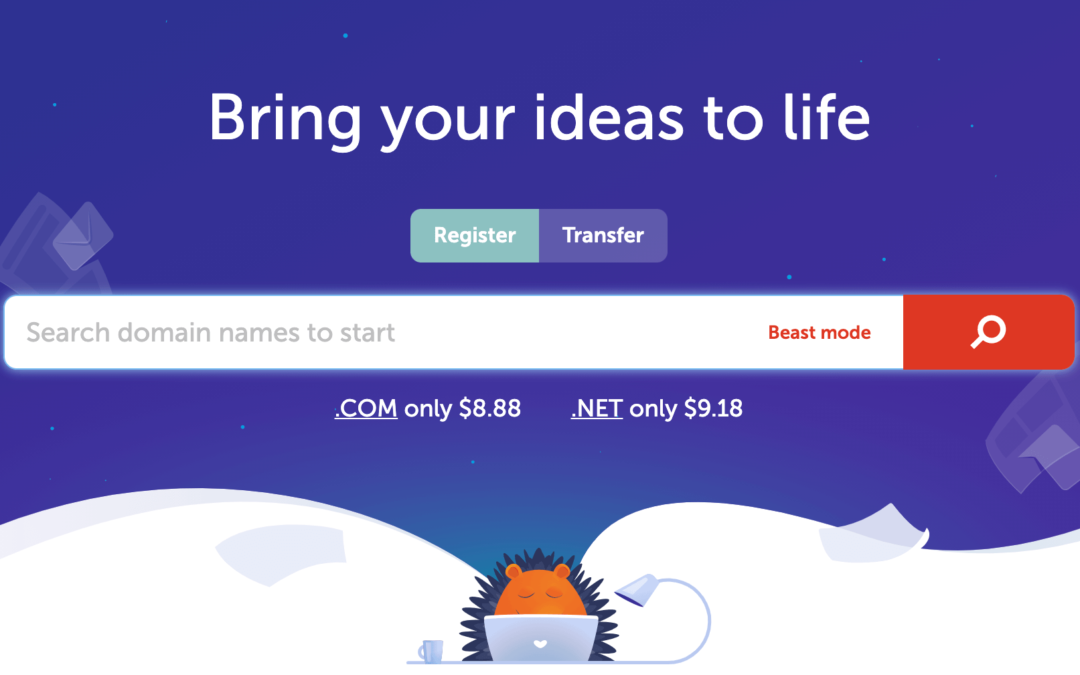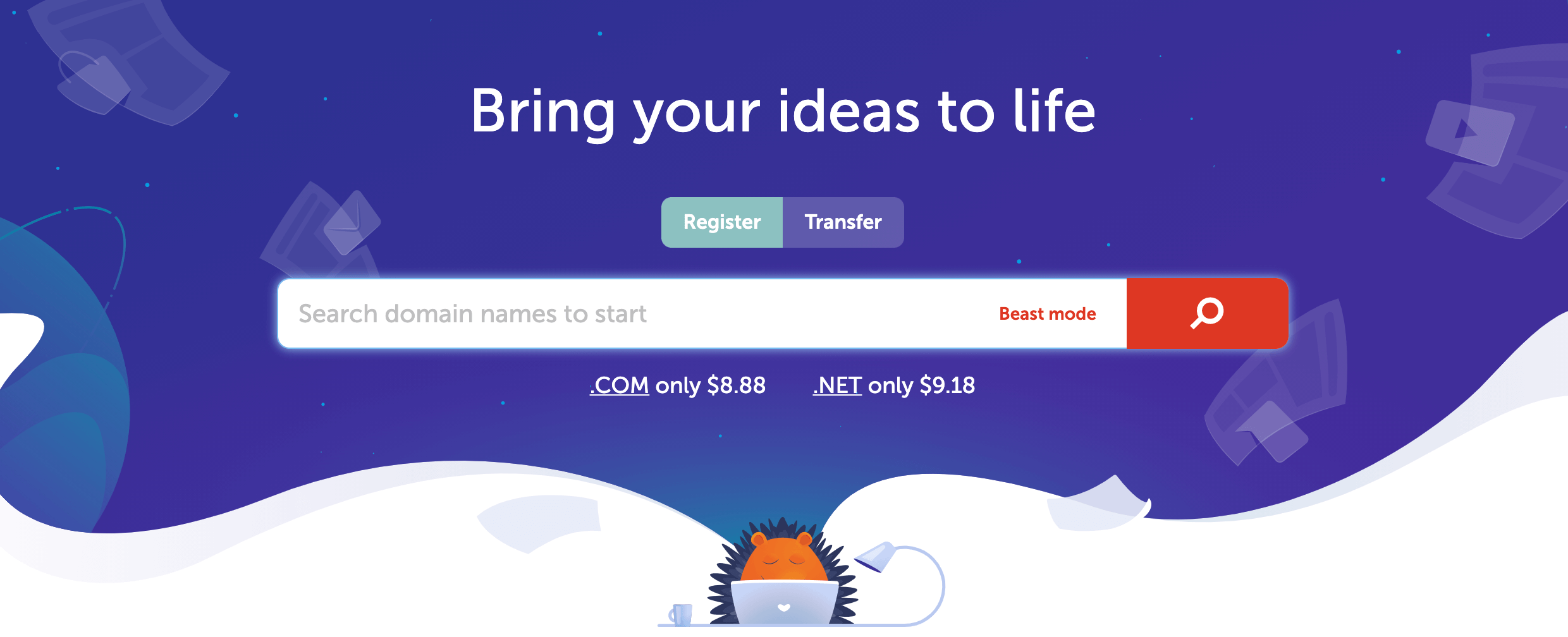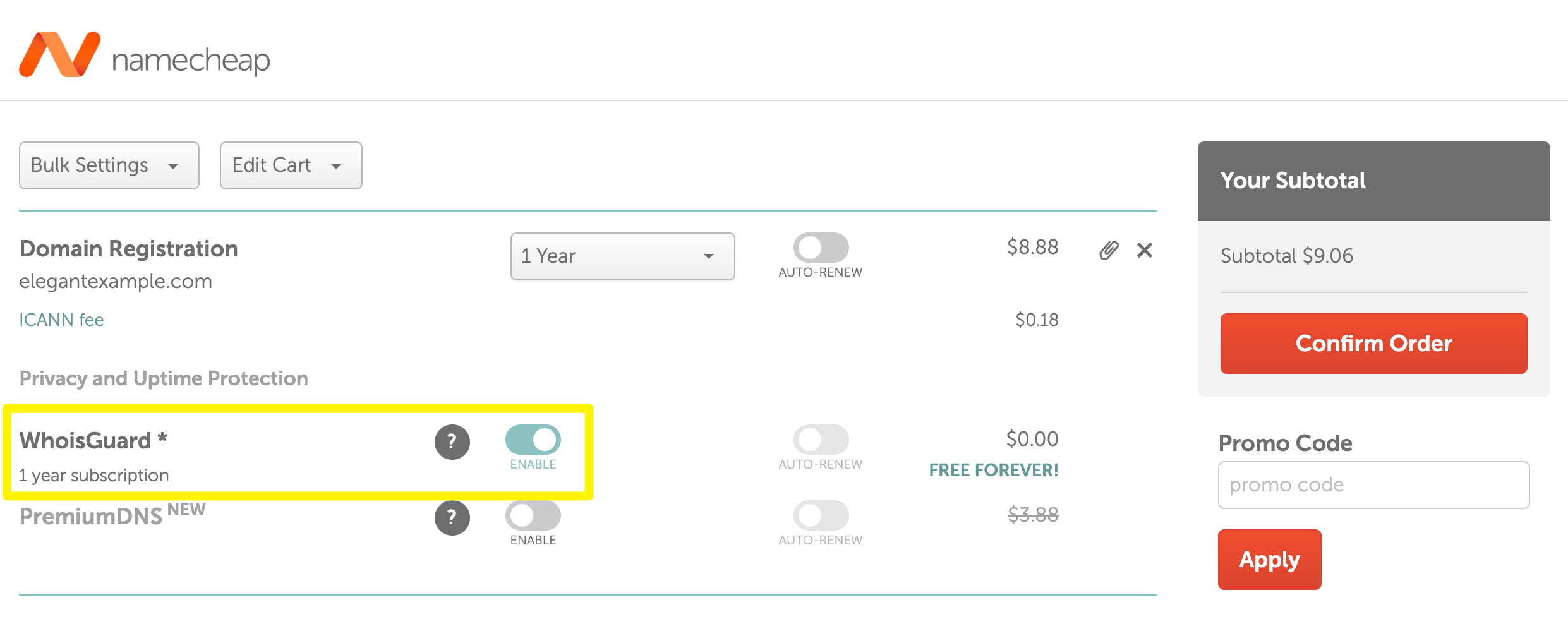Whether you’re launching your first website or upgrading an existing one, your domain name is a central element. It’s important from a technical standpoint, as it allows users to easily access your site, but it’s also essential to your digital brand.
Since understanding domain names is so crucial for website owners and managers, we’ve compiled a number of frequently asked questions so you can learn everything you need to know.
Let’s get started!
What is a domain name?
You may not realize it, but you’re probably already very familiar with domain names. These are the URLs you type into your browser to access familiar websites. For example, the one for this site is elegantthemes.com.
The primary purpose of a domain name is to serve as the address for your website. Every computer, including the server that hosts your website, has an IP address consisting of a string of numbers. Without a domain name, users would have to enter the IP address of your server to access your site.
Instead, your web address provides an easy-to-remember alternative that users can quickly type in to access your content. If you choose it wisely, it also helps anchor your brand in visitors’ minds so they become familiar with it.
What is the Domain Name System (DNS)?
To understand the ins and outs of how domain names work, you need to know about DNS. It is a decentralized system that stores information about domains connected to IP addresses.
When a user enters your domain name in their browser, the browser checks the DNS for the corresponding IP address and directs the visitor to the correct page. In this sense, you can think of the DNS as a directory of the Internet.
There are several scenarios in which you may need to interact directly with the DNS, such as troubleshooting errors or setting up a custom email address. It is also a key element when moving your site to a new domain or host.
What is the difference between a domain name and web hosting?
Domain names and web hosting are often confused because many web hosts are also domain registrars and both services are required to launch a website. However, they are two completely different concepts.
Your domain, as we have already explained, is the address of your website. Your web host provides the server for your website, which is like its home. While you can buy hosting and a domain from the same company, you don’t have to.
What is a top-level domain (TLD)?
A TLD is the final part of a domain name, like .com. One TLD doesn’t work any better than another when it comes to allowing users to access your site, but there are key differences between them.
For example, your TLD may say something about the nature of your website. For example, .org is traditionally used for nonprofit organizations. Newer TLDs, such as .blog or .shop, may be used for content centers and e-commerce sites. Others – including .gov and .edu – require additional verification because they indicate a certain level of authority.
Your TLD can also influence the cost of your domain name. While .com addresses cost about $10 per year, an .inc domain costs several thousand dollars.
What is a subdomain?
If you’re familiar with WordPress multisite, you may have come across the term “subdomain.” This is the URL for a specific part of a website or “microsite” in a network. It is designated by a prefix such as blog.example.com.
Subdomains are treated as completely separate websites by search engines and have many uses, especially when it comes to structuring larger sites. You can usually set them up through your web host’s control panel.
How to choose a domain name?
Generally speaking, your domain name should match the name of your website, brand or company. This avoids confusion among visitors and ensures consistency, which is essential.
However, if you are just starting out or if your ideal domain name is already taken, there are several sources of inspiration, such as automatic domain name generators. Remember, your name should be unique, concise and memorable.
You can check which domains are available by going to any registrar’s website and using their search function:
If your first choice is not available, the registrar may even offer similar alternatives to help you find one that will meet your needs.
Where to buy a domain name?
You can purchase a domain name from any registrar. As mentioned earlier, many hosting companies act as registrars, but you can also choose to have your hosting and domain handled by different companies.
Namecheap and GoDaddy are two popular registrars that you can consider. However, purchasing your domain from your hosting provider usually makes it easier to create your first website. Many hosting providers also offer the first year of registration for free when you purchase a plan (although you still have to pay the annual renewal fee).
What is domain name privacy?
When you purchase a domain name, you are registering it as part of a public record. ICANN (Internet Corporation for Assigned Name and Numbers) is responsible for maintaining a directory of the owners of every domain name on the web.
However, ICANN’s records include your contact information, which you may not wish to make public. Buying a confidential domain name keeps your personal information private and out of sight in this registry.
Domain confidentiality is also sometimes called WHOIS protection. It is usually offered as an additional option when you purchase your :
Some registrars, such as Namecheap, include WHOIS protection for free (or, more accurately, include it in the cost of your domain). Others may indicate that it is a separate cost, but the protection of your privacy is worth it.
Can you sell a domain name?
If you decide you no longer want or need a domain name you have registered, you can resell it. Flippa is a popular marketplace for selling “digital real estate”:
However, you can also work with a broker or sell your domain name at auction. Several factors influence the price you can get for your web address, for example:
- What TLD is used
- Whether it includes valuable keywords
- Its degree of recognition
If you are also selling the website you created on your domain, other factors such as the level of traffic and the content you have published may also come into play.
Conclusion
While there are many different elements that come into play in the world of domain names, they are actually quite simple to understand. Learning all you can about them will pay off in the long run, as it will help you better create, maintain and even sell your website.
In this article, we’ve covered a lot of information about domain names, including what they are and how they work. We have also provided some tips on how to choose, buy and sell them.
Do you have any questions about domain names? Leave them for us in the comments section below!




